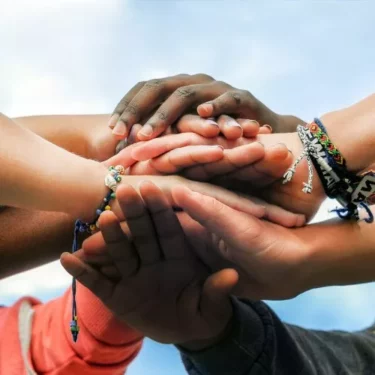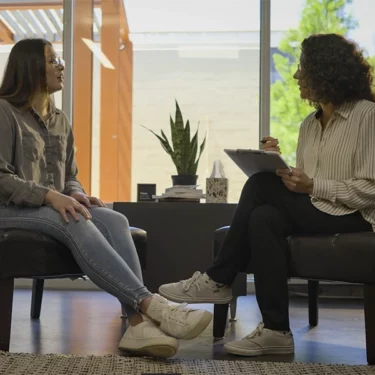Pride Month has gained momentum this year as more people and organizations express their support for LGBTQ+ people.
Secretary of Education Miguel Cardona announced the Department of Education will work harder to protect LGBTQ+ students from discrimination, affirming transgender and nonbinary students’ rights under Title IX, the 1972 law that prohibits discrimination on the basis of sex in public schools.
The U.S. State Department for the first time flew the progress flag – a variation of the rainbow flag – over its buildings from June 26-28. And even Sesame Street got in on the action with an episode that included gay fathers on its “Family Day” episode. The episode is an important reminder that families come in all forms.
Those all represent important steps, but there’s more we can do to show our support for LGBTQ+ people and help improve their lives. We know anxiety increased substantially during the pandemic. The CDC reported that during August 2020 and February 2021, the percentage of adults with recent symptoms of an anxiety or a depressive disorder increased from 36.4% to 41.5%.
But the pandemic’s effect on young people and LGBTQ+ youth is more terrifying. We know from our own survey that demand for youth mental health and substance use care is increasing, with 63% of National Council member organizations seeing an increase in the demand for youth services. Health and Human Services Assistant Secretary for Health Rachel Levine said last week she wants to prioritize children’s mental health along with other research, treatment and recovery issues.
“We’re just beginning to understand the impacts of COVID-19 on youth’s mental health, changes in routine, breaks in continuity of learning, missed life events, loss of security and safety, diseased and even death of loved ones,” Levine said at a National Institute of Mental Health event. “The concern is that this is going to have significant public health consequences both in the short-term but also in the long-term in terms of their overall health and wellbeing of children and teenagers.”
New data supports Levine’s argument and illustrates that the pandemic has left LGBTQ+ youth especially vulnerable. In 2020, 42% of young LGBTQ+ people — including more than half of transgender or nonbinary youths — considered suicide, according to The Trevor Project’s 2021 National Survey on LGBTQ+ Youth Mental Health, conducted from October to December 2020.
Of those surveyed, 70% said their mental health was “poor” during the pandemic, and 48% said they wanted counseling in the past year but couldn’t get the treatment they so desperately needed. Eliminating barriers to access that prevent LGBTQ+ from getting treatment for mental health challenges would represent a profound and practical step in the right direction.
We must eliminate the stigma surrounding mental health treatment. We also need more mental health professionals. Data from the Health Resources and Services Administration shows that 125 million people live in so-called health professional shortage areas that have a profound shortage of mental health workers.
In addition to improving access to care, providing support goes a long way toward improving the mental health of youth LGBTQ+. The Trevor Project says that even one affirming adult can have a big impact on LGBTQ+ youth and drastically reduce the likelihood that LGBTQ+ youth attempt suicide.
Respecting transgender and nonbinary youth’s pronouns and allowing them to change their name and/or gender marker on legal documents are also associated with lower rates of attempting suicide. We have so much work to do to improve the mental wellbeing of all Americans, but the mental health and welfare of LGBTQ+ youth – often overlooked – requires an urgent response.
Demonstrating support for the LGBTQ+ community during Pride Month is meaningful and compassionate. Demonstrating that support throughout the remaining 11 months of the year will help produce dramatic change.
If you are an LGBTQ+ young person in crisis, having thoughts of suicide or in need of a safe and judgment-free place to talk, you can contact The Trevor Project’s trained crisis counselors 24/7 at 866-488-7386, via chat at TheTrevorProject.org/Help or by texting START to 678-678.
You may also call a crisis hotline, such as the National Suicide Prevention Lifeline at 800-273-8255 or the Substance Abuse and Mental Health Service Administration National Helpline at 800-662-4357.



